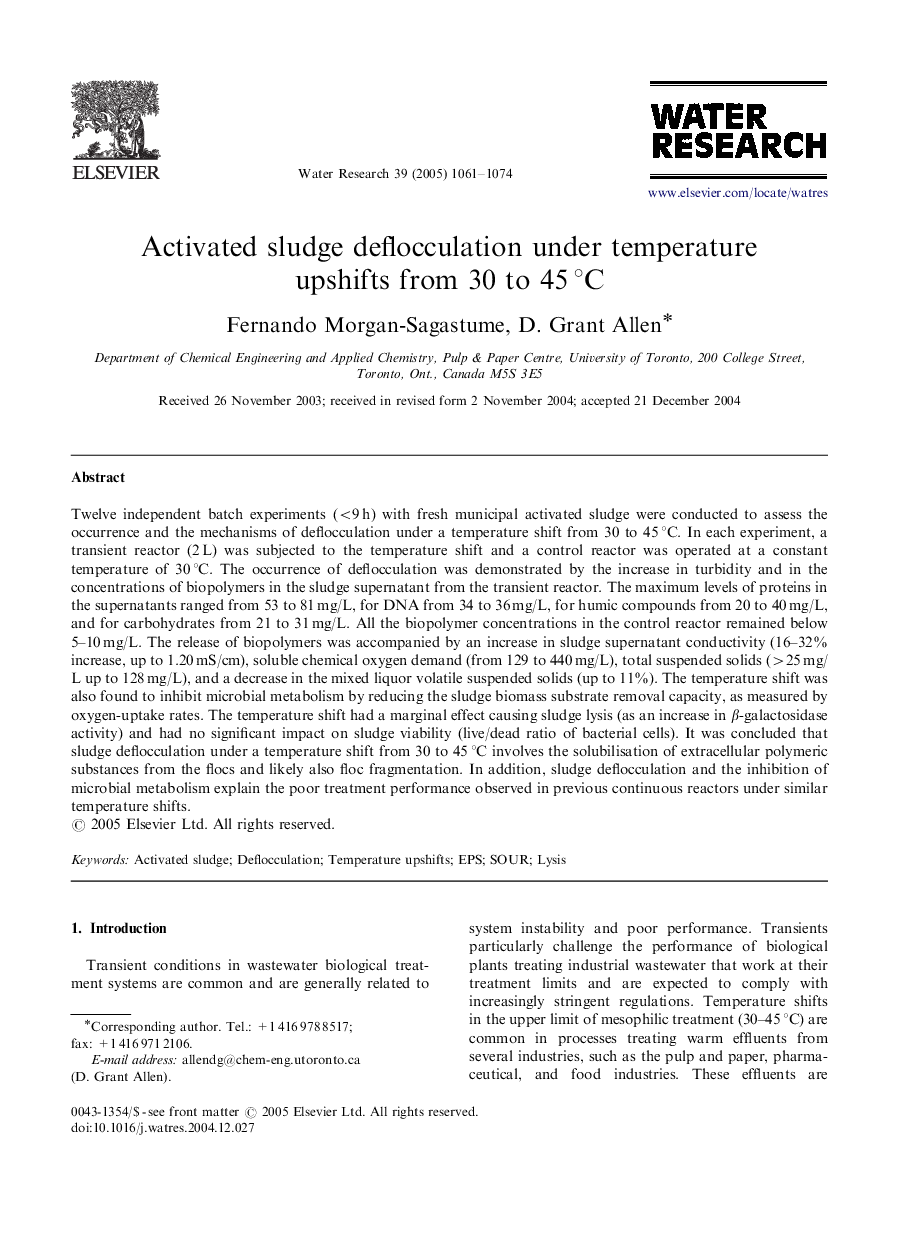| کد مقاله | کد نشریه | سال انتشار | مقاله انگلیسی | نسخه تمام متن |
|---|---|---|---|---|
| 9468228 | 1317013 | 2005 | 14 صفحه PDF | دانلود رایگان |
عنوان انگلیسی مقاله ISI
Activated sludge deflocculation under temperature upshifts from 30 to 45 °C
دانلود مقاله + سفارش ترجمه
دانلود مقاله ISI انگلیسی
رایگان برای ایرانیان
موضوعات مرتبط
مهندسی و علوم پایه
علوم زمین و سیارات
فرآیندهای سطح زمین
پیش نمایش صفحه اول مقاله

چکیده انگلیسی
Twelve independent batch experiments (<9 h) with fresh municipal activated sludge were conducted to assess the occurrence and the mechanisms of deflocculation under a temperature shift from 30 to 45 °C. In each experiment, a transient reactor (2 L) was subjected to the temperature shift and a control reactor was operated at a constant temperature of 30 °C. The occurrence of deflocculation was demonstrated by the increase in turbidity and in the concentrations of biopolymers in the sludge supernatant from the transient reactor. The maximum levels of proteins in the supernatants ranged from 53 to 81 mg/L, for DNA from 34 to 36 mg/L, for humic compounds from 20 to 40 mg/L, and for carbohydrates from 21 to 31 mg/L. All the biopolymer concentrations in the control reactor remained below 5-10 mg/L. The release of biopolymers was accompanied by an increase in sludge supernatant conductivity (16-32% increase, up to 1.20 mS/cm), soluble chemical oxygen demand (from 129 to 440 mg/L), total suspended solids (>25 mg/L up to 128 mg/L), and a decrease in the mixed liquor volatile suspended solids (up to 11%). The temperature shift was also found to inhibit microbial metabolism by reducing the sludge biomass substrate removal capacity, as measured by oxygen-uptake rates. The temperature shift had a marginal effect causing sludge lysis (as an increase in β-galactosidase activity) and had no significant impact on sludge viability (live/dead ratio of bacterial cells). It was concluded that sludge deflocculation under a temperature shift from 30 to 45 °C involves the solubilisation of extracellular polymeric substances from the flocs and likely also floc fragmentation. In addition, sludge deflocculation and the inhibition of microbial metabolism explain the poor treatment performance observed in previous continuous reactors under similar temperature shifts.
ناشر
Database: Elsevier - ScienceDirect (ساینس دایرکت)
Journal: Water Research - Volume 39, Issue 6, March 2005, Pages 1061-1074
Journal: Water Research - Volume 39, Issue 6, March 2005, Pages 1061-1074
نویسندگان
Fernando Morgan-Sagastume, D. Grant Allen,